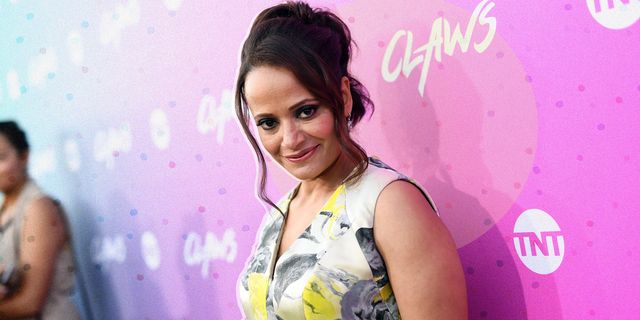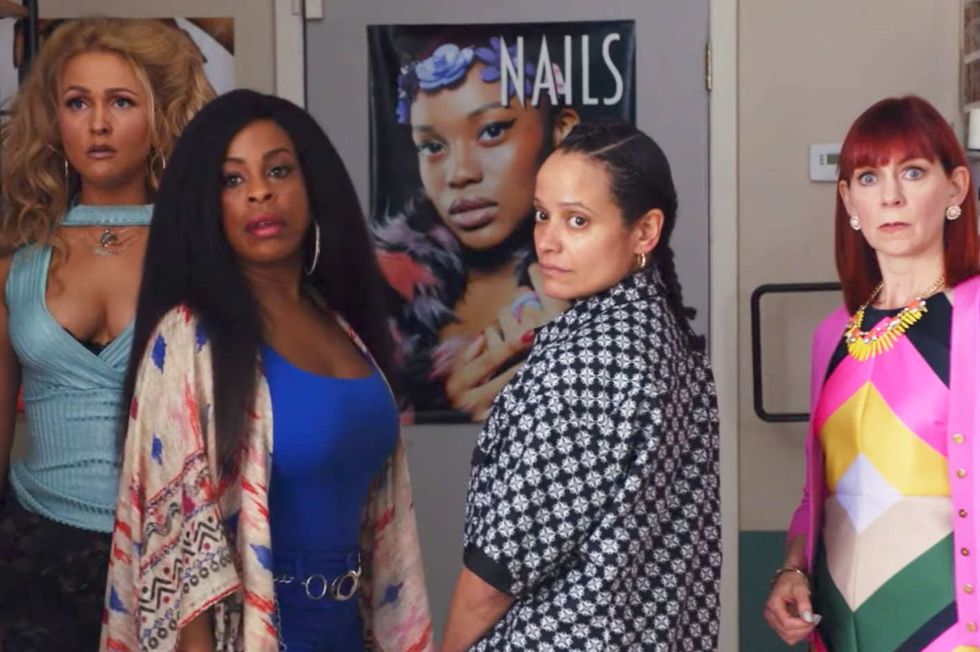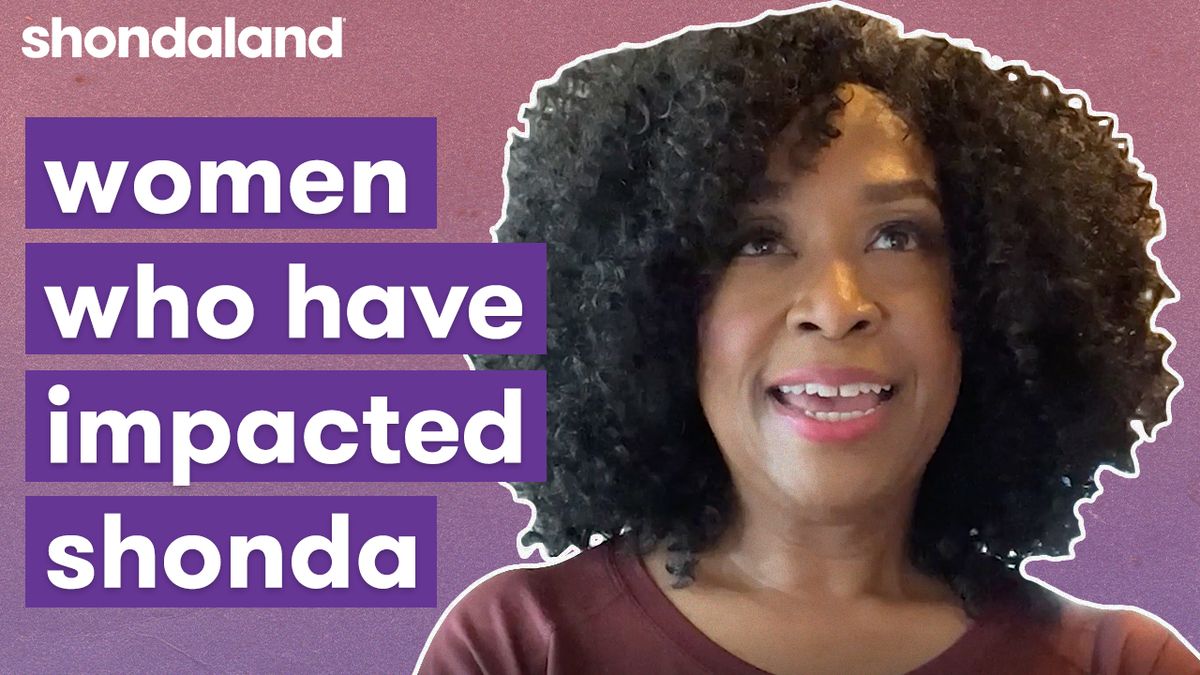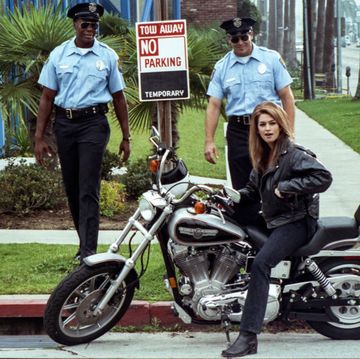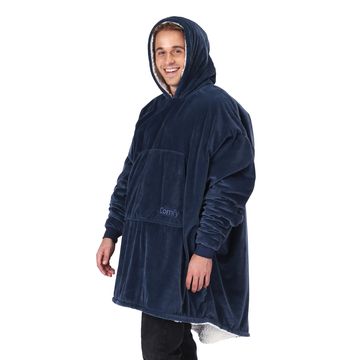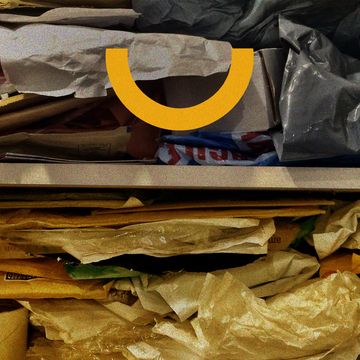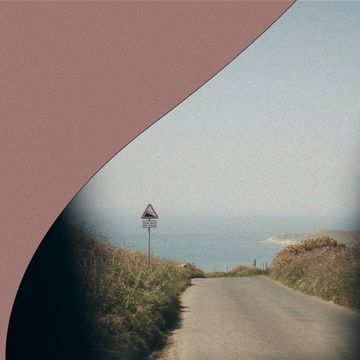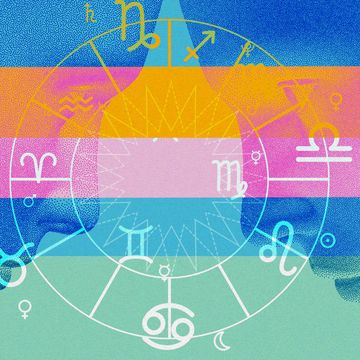It was the episode that made fans of "Claws" pause and pay attention. In the middle of the nail salon dramedy’s outrageous sophomore season — which has been filled with everything from the Russian mafia, to an unexpected pregnancy, and a strip club shootout — there was an episode titled "Scream" in which Quiet Ann (Judy Reyes) fights back after being continually marginalized and undervalued by her friends. It was particularly poignant because the dutiful Quiet Ann, a lesbian ex-con, had always been a woman of few words. But she, like Reyes, is reliable, important, and will no longer be ignored.
Charging to the forefront after a nearly three-decade career that includes "Scrubs," "Devious Maids" and "Jane the Virgin," Reyes has proven once again that she’s a force to be reckoned with on "Claws." Her portrayal of Quiet Ann is so unlike any other character she’s played — yet they both share a determination, desire to be seen, and an incredible journey punctuated by challenges and triumph.
Reyes talked to Shondaland about her career-turning role on Claws, the importance of being among its diverse female cast, growing up a young Dominican girl in the Bronx with big Hollywood dreams, and why she refuses to stay silent about issues that matter to her.
Shondaland.com: Watching Quiet Ann in the "Scream" episode, I couldn’t help but think about how much that performance and those lines parallel what I felt to be your story and career — that both have been demanding our attention. Did you draw from personal experience on "Scream?"
That’s astoundingly perceptive of you to make that parallel. I didn’t see it that way until you just put it into words. As a working Latina actor, I want the challenge and freedom to play different roles. Achieving success playing the sassy nurse on "Scrubs" was the most amazing thing in terms of generating the career that I have. I get to be the sassy this and the sassy that. It makes money for people. It makes money for me. But I still want to be able to play something else. So once this opportunity to play Quiet Ann came along, I became nervous about actually speaking. I wanted to do right by her and do right by the show. I incorporated that nervousness into everything the character was going through. I said, "Jesus Christ, I hope I don’t fuck this up."
SL: You didn’t! Quiet Ann is so different from any other character you’ve played. Is that one of the things that attracted you to the role?
JR: The opportunity is what attracted me to her. I was like, "Oh shit, I know this girl." The script was incredible. What you see is not what is described on the page. She was a butch lesbian, definitely ethnic but she was 6-foot something. I told my manager, "I don’t know…" She was like, "Well, they can’t find her. Just go in [to the audition]." I went to my acting coach and she said, "Oh, you can totally do this." I just filtered from the outside in and made her what I know. It was a lot of fun to have the freedom of playing her physically — no makeup, none of that. Someone that you actually know.
SL: What have you learned about yourself as an actress or as a person while portraying Quiet Ann?
JR: I think what I learned is how much like her I am, and how silence is quite a virtue. Instead of saying something, you can often say something with so little. I learned about loyalty to a fault. Also, how silence can make you constantly question yourself and explore the thoughts and attitude in your head. It also made me see how much more accepting and loving the people around you are than you think, and how less alone you are. It’s really spectacular how supportive this environment is, with such powerful women. Niecy [Nash] is a spectacular leader. Jenn Lyon is a hilarious character actress. Carrie Preston — what can you say about her and all the characters that explode out of her? Karrueche Tran is a superstar and a smart young actor. And of course, the team of men around.
SL: I’ve also loved how the show has centered female entrepreneurship, particularly in its first season. That’s not something we’ve seen from such a diverse, interesting group of women on the small screen.
Never. I think it turns a comical, entertaining, realistic serial comic eye on the disenfranchisement of these women: An African American woman in her 40s, a Latina lesbian ex-con, a questionably stable/mentally unstable white woman ex-con in her 40s, and Jenn is a recovering on-again/off-again alcoholic white trash in Florida, still trying to move forward. They’re outlaws, but not necessarily criminals. There are definitely women like this [in real life] who are relentless, taking care of each other and their families. They’re doing whatever they can to take their pieces of the pie and use that success to actually encourage women to start their own businesses. I think that’s a great way to pay it forward.
SL: I agree. You have also been very vocal about LGBT and immigration issues, which are both so embedded in Quiet Ann’s character. Why has that become so meaningful for you as an actress and public figure?
JR: I’m first generation Dominican from Dominican parents, so I can’t turn a blind eye to what’s going on in terms of immigration. It’s the least that I can do to be honest about how I feel. I appreciate how the show is lending a voice to different points of view. My Latina point of view is just that: I’m the daughter of an immigrant. And I think [what’s been going on] is bullshit.
SL: As we continue to address some of the issues that #TimesUp has confronted, including narrowing the pay gap, how do you think it’s impacted Latinas in Hollywood?
JR: I think we’re seeing more, but I don’t think it’s a significant shift. There needs to be more work done. What happens is that there’s only one point of view. We need people in the studio, behind the scenes, that are Latino in order to tell stories from multiple Latino points of view — not just the immigrant story. In order to get those stories told, we need more writers, more executives. It’s just so complicated because we’re multicultural, multiethnic, all different colors and all different cultures. It’s not just Mexican or Puerto Rican. We’re Afro-Latinos. We’re indigenous Afro-Latinos. We’re rich, we’re poor. Oftentimes the powers that be shy away from telling that story. We have to tell them ourselves at the end of the day, in order to have greater representation. I think because I’m working there are more [opportunities] and I’m super grateful for that. But I have to be a part of there being more done. I have to also walk the walk, and I’m working towards that.
SL: There have been shows like "Queen of the South," "Vida," "One Day at a Time," "Jane the Virgin," "Devious Maids," and "Superstore" that are at least on TV, but even as successful and great as these shows are, they’re still considered niche. What is the measure of success for content featuring Latinos?
JR: In terms of being an artist, when is it enough? Creating is a constant process. I had a recurring role on "One Day at a Time" and it was my joy to be a part of the show. I think it’s fucking brilliant. I’m excited to catch up with "Vida." I want to be a part of doing shit like this. It’s exciting to see more of these stories. But until the studios and everybody start making money, that’s where it gets complicated.
SL: I would say yes, it is complicated, but it doesn’t have to be.
JR: It doesn’t, when you consider all the money that’s burned on other shit. Because without saying it, we know why that is. That’s why we have to do it ourselves.
SL: Who are some of the female heroes that you’ve looked up to on your way to the top?
I don’t know if I did. I just remember being a TV junkie in the 70s, watching all those Aaron Spelling and Norman Lear shows. I just knew that I always wanted to act. But as a child, it was almost like a fantasy. I grew up in a basement. My father was a superintendent in the Bronx. We had one TV. When we got it, we watched everything there was — "The Love Boat," "Charlie’s Angels"… you name it, I was fucking watching it.
SL: How did you realize that you wanted more than just to watch TV, that you wanted to be on TV?
JR: It was my twin sister [Joselin] who wanted to be an actress. She made my mom take her to acting class. My mother got so pissed because she made her go and the man wanted, like, $150 for pictures. He was telling everyone the same thing: that he was going to put them in a McDonald’s commercial. My sister just let [acting] go. But I did a talent show at the church where a woman named Carmela was putting together a huge talent show. She got me and my sisters to do some singing, dancing, and acting. We choreographed a number to Jody Watley’s "Don’t You Want Me?" There were six of us: me and Carmela’s daughters. I sang "Papa Don’t Preach" by Madonna (I remember my outfit and everything). And then we did a scene from "The House of Bernarda Alba." We were so good that we brought the house down. I was like, "Oh my God, this is what I want to do with my life. I want to be an actress." It was an epiphany.
I was only in college, like 18 years old. I went into my mother’s room where she was watching a telenovela. I told her, "I know what I want to do with my life — be an actress." She was like, "Ay, Judy please." She just shat on my epiphany [laughs]. I was so hurt. She was like, "You’re going to be a social worker or a teacher. [Acting] is for white people." I looked at her and was like, "Well, I’m going to do it," and I walked out of her room and slammed the door.
SL: I love that! You were so determined at such a young age. How did you make it happen for yourself?
JR: I started taking acting classes in college. The next year I took musical theater at Hunter College. But it was still taking too long for me. So, I got a part-time job as a hostess at a restaurant. I met my first manager then. And later, I got my first movie [1992’s "Jack and His Friends"] and did two plays. Then there were a lot of breaks in between and lot of part-time jobs before "Scrubs" came along.
SL: Your story has such grit and fight. It’s truly inspiring.
JR: I just try to walk the walk.
This interview has been edited and condensed.
Candice Frederick is a freelance TV/film critic living in New York City. You can find more of her work here. Follow her on Twitter.
Get Shondaland directly in your inbox: Subscribe Today
